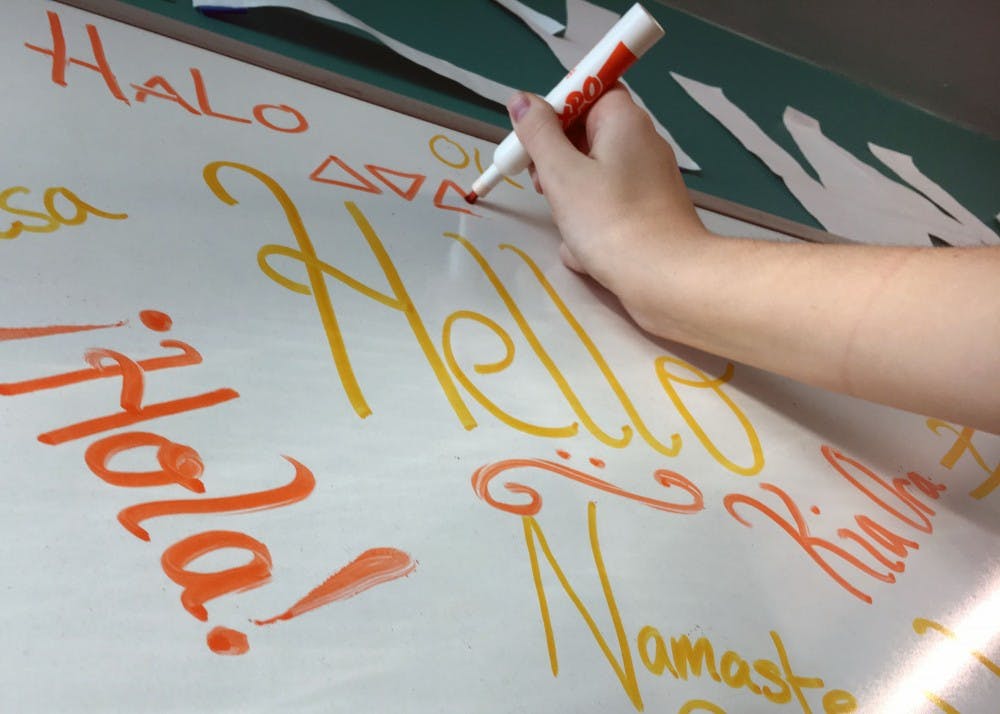With 80,000 students, diversity is everywhere on the ASU campus. Despite the incredible diversity that surrounds students, many still remain culturally isolated. Bilingualism is a powerful avenue to help connect people with different cultural backgrounds, and students should strive to learn a new language in college.
Taking the leap and learning any of the existing 7000 languages as a new means of communication not only helps the cognitive abilities of the brain, but also helps strengthen one's understanding of other cultures.
Most language classes ensure students not only leave the classroom educated in the linguistics of their selected tongue, but have a cultural and geographical understanding behind the language as well.
“A typical language course would emphasize the various culture, cultural issues and so forth, so a person who takes a language would already be equipped to meet people with different cultures and interact with them,” said Michael Markiw, an area specialist librarian at ASU who is multilingual.
ASU offers a variety of languages for students to major and minor in. Students are given the opportunity to learn a second language before it is too late, and should do so while their brains are still young.
As an adult it becomes harder to learn a second language; however, with perseverance anyone can retrain his or her brain.
“[At ASU], we have the traditional language major courses. But we have something called the Critical Language Institute, which is for the less commonly taught languages. It can go further in-depth into things like Albanian, Armenian and Indonesian [languages]. And we send students to go abroad and get immersed in the language and culture,” Markiw said.
The United States is falling behind in language studies, approximately 20 percent of U.S. citizens are bilingual, whereas European countries boast an average of more than 50 percent of citizens who are bilingual.
Globally, people are making an effort to communicate with our country, but we are not taking the same action.
The most common language people choose to study is English, with 1.5 billion learners and 101 countries speaking it. As citizens of one of the super powers of the world, we should be promoting diversity and working alongside other countries; however, we often lack the communication abilities to effectively do so.
Stepping out of one’s comfort zone can be difficult, but having the ability to be involved in two different cultures and communities and engage fluently with people in both of them is worth the initial butterflies.
“Just one common word opens the door and then [you] can go right into it and relate to the people that [you] would normally ignore. [Being bilingual] definitely is a door opener,” Markiw said.
Reach the columnist at afsuthe1@asu.edu or follow @a_sutherland10 on Twitter.
Editor’s note: The opinions presented in this column are the author’s and do not imply any endorsement from The State Press or its editors.
Want to join the conversation? Send an email to opiniondesk.statepress@gmail.com. Keep letters under 300 words and be sure to include your university affiliation. Anonymity will not be granted.
Like The State Press on Facebook and follow @statepress on Twitter.




